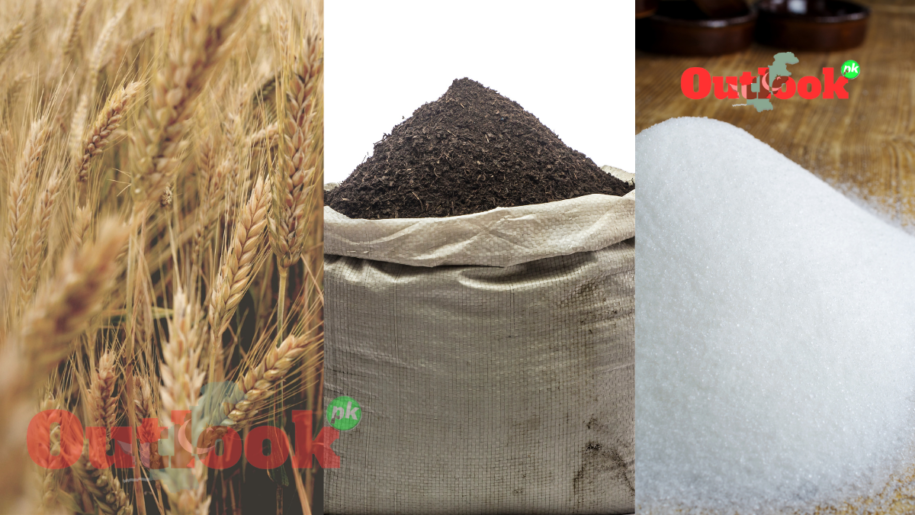Agricultural policies in Pakistan have long been a subject of intense debate and scrutiny. Every year, the country experiences fluctuations in the stocks of key agricultural commodities such as wheat, manure, and sugar.
The cycle of declaring surplus and then deficit, leading to abrupt shifts between export and import policies, raises questions about the underlying causes. This article delves into the intricate dynamics, potential conflicts of interest, and the need for systemic reforms in Pakistan’s agricultural sector.
The Surplus-Deficit Cycle: A Recurring Dilemma
The Pattern of Exports and Imports
Each year, Pakistan witnesses a peculiar pattern in its agricultural commodity management. At times, there is an announcement of surplus stocks, prompting the government to push for exports. Shortly after, the narrative shifts to a deficit, leading to a halt in exports and a push for imports. This cyclical phenomenon begs the question: Is there an orchestrated effort by influential stakeholders, or is it a result of poor planning and mismanagement?
Potential Conflicts of Interest
There is a widespread belief that significant conflicts of interest among decision-makers are at play. Many of those who formulate policies are also major stakeholders in the agriculture and related industries. This dual role allows them to influence decisions that directly benefit their business interests, creating a situation ripe for exploitation and manipulation.
Structural Issues and the Need for Reform
Separation of Powers
One of the primary reforms suggested is the clear separation of powers between those who make the laws and those who implement them. By ensuring that legislators are not directly involved in the enforcement of laws, the chances of conflicts of interest can be minimized. This separation would pave the way for more objective and transparent policy-making.
Market Economy Principles
The current system of support prices for agricultural products is often criticized. In a true market economy, prices should be determined by demand and supply without artificial interventions. However, the support price mechanism in Pakistan is heavily politicized, often used to garner political support rather than to stabilize the market.
Case Study: Wheat Support Prices and Market Distortions
The Support Price Mechanism
The support price for wheat is intended to provide farmers with a guaranteed minimum price for their produce. However, this mechanism has led to several distortions in the market. For instance, when the government promises a certain price and then fails to honor it due to market fluctuations or policy changes, it leaves farmers in a precarious situation.
Impact on Farmers
Farmers are often left with surplus produce that they cannot sell at the promised support price. When the government imports wheat despite local surplus, it leads to an oversupply in the market, further driving down prices. This not only affects the farmers’ income but also discourages them from growing wheat in subsequent seasons, leading to potential food shortages and increased import bills.
Broader Implications and Long-Term Solutions
Encouraging Efficient Production
To address these issues, there needs to be a focus on making the entire supply chain from farm to market more efficient. Reducing the number of intermediaries who can manipulate prices will ensure that farmers get a fair price and consumers benefit from reasonable costs.
Diversifying Agricultural Production
Encouraging the production of diverse crops such as cotton, sugarcane, and rice alongside wheat can help balance the agricultural output and reduce dependence on any single commodity. Policies should also promote the use of brown sugar and jaggery, which are healthier alternatives to white sugar and have a better market value.
Addressing Grey Economy and Enhancing Transparency
The grey economy in Pakistan significantly affects the agricultural sector. Transparent policies and strict implementation of regulations can help reduce the influence of the grey economy, ensuring that the benefits of agricultural production are fairly distributed.
Developing a Robust Export Strategy
A well-planned export strategy that aligns with global market demands can help stabilize the agricultural sector. By anticipating market needs and adjusting production accordingly, Pakistan can avoid the cyclical issues of surplus and deficit.
Conclusion
The recurring issues in Pakistan’s agricultural policies, especially concerning wheat, manure, and sugar, highlight the need for comprehensive reforms. Addressing conflicts of interest, separating legislative and executive powers, and adopting market-driven principles are crucial steps toward creating a stable and efficient agricultural sector. By fostering transparency and encouraging diversified production, Pakistan can ensure food security, support its farmers, and improve its economic outlook.
FAQs
1. Why does Pakistan experience cycles of surplus and deficit in agricultural commodities?
The cycles are often due to a combination of poor planning, market manipulation, and conflicts of interest among decision-makers who have stakes in the agriculture sector.
2. What are the main challenges faced by farmers due to current agricultural policies?
Farmers face instability in prices, unfulfilled government promises on support prices, and market distortions caused by abrupt shifts between exports and imports.
3. How can separating legislative and executive powers help the agricultural sector?
It can reduce conflicts of interest and ensure that policies are made objectively and implemented transparently, without undue influence from those who stand to benefit directly from the laws.
4. What role does the grey economy play in the agricultural sector?
The grey economy creates distortions in the market, allowing for manipulation and unfair distribution of benefits, which affects both farmers and consumers.
5. What long-term solutions can stabilize Pakistan’s agricultural sector?
Implementing efficient supply chains, diversifying crop production, enhancing transparency, and developing a robust export strategy are key steps to stabilize the sector and ensure sustainable growth.







